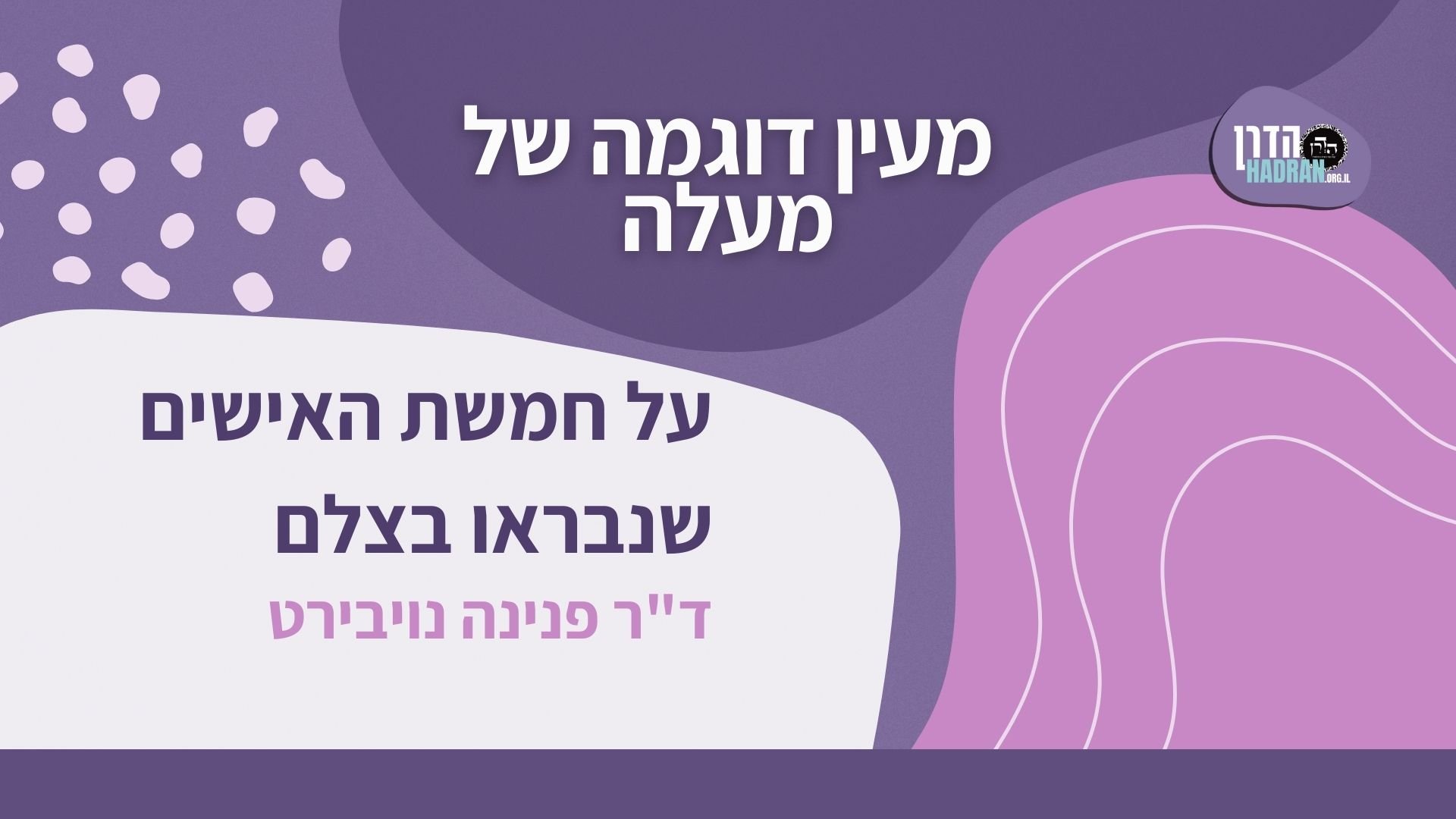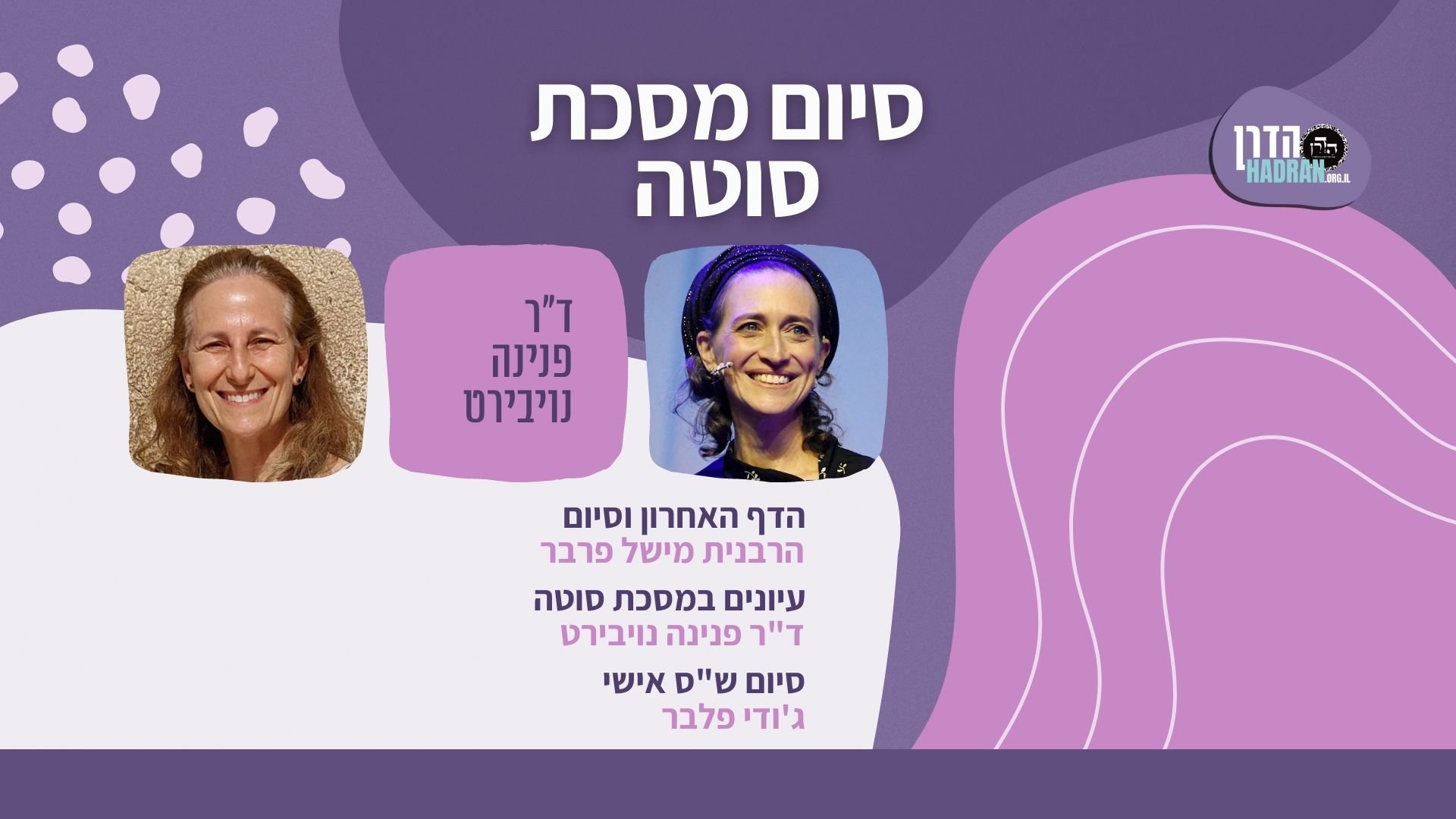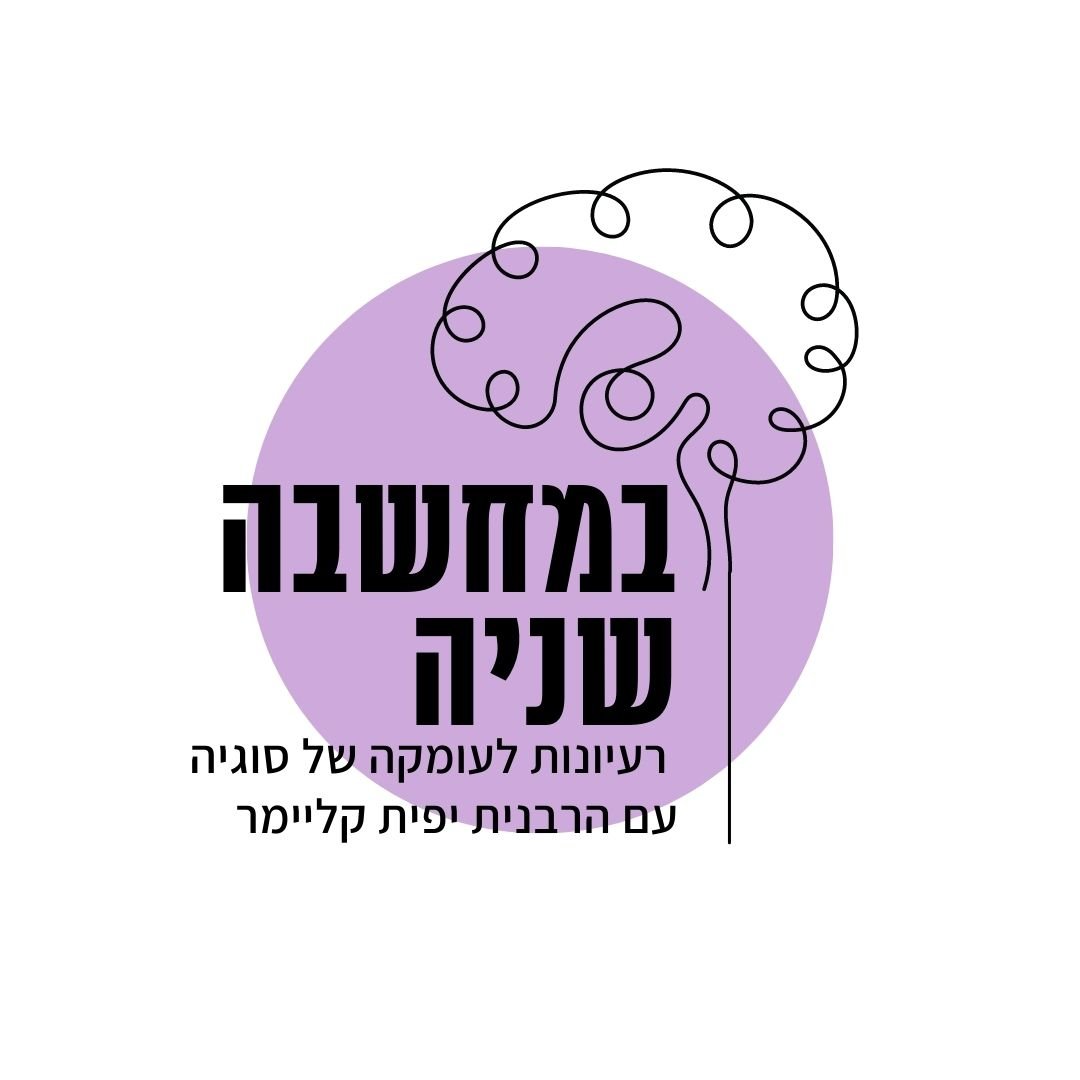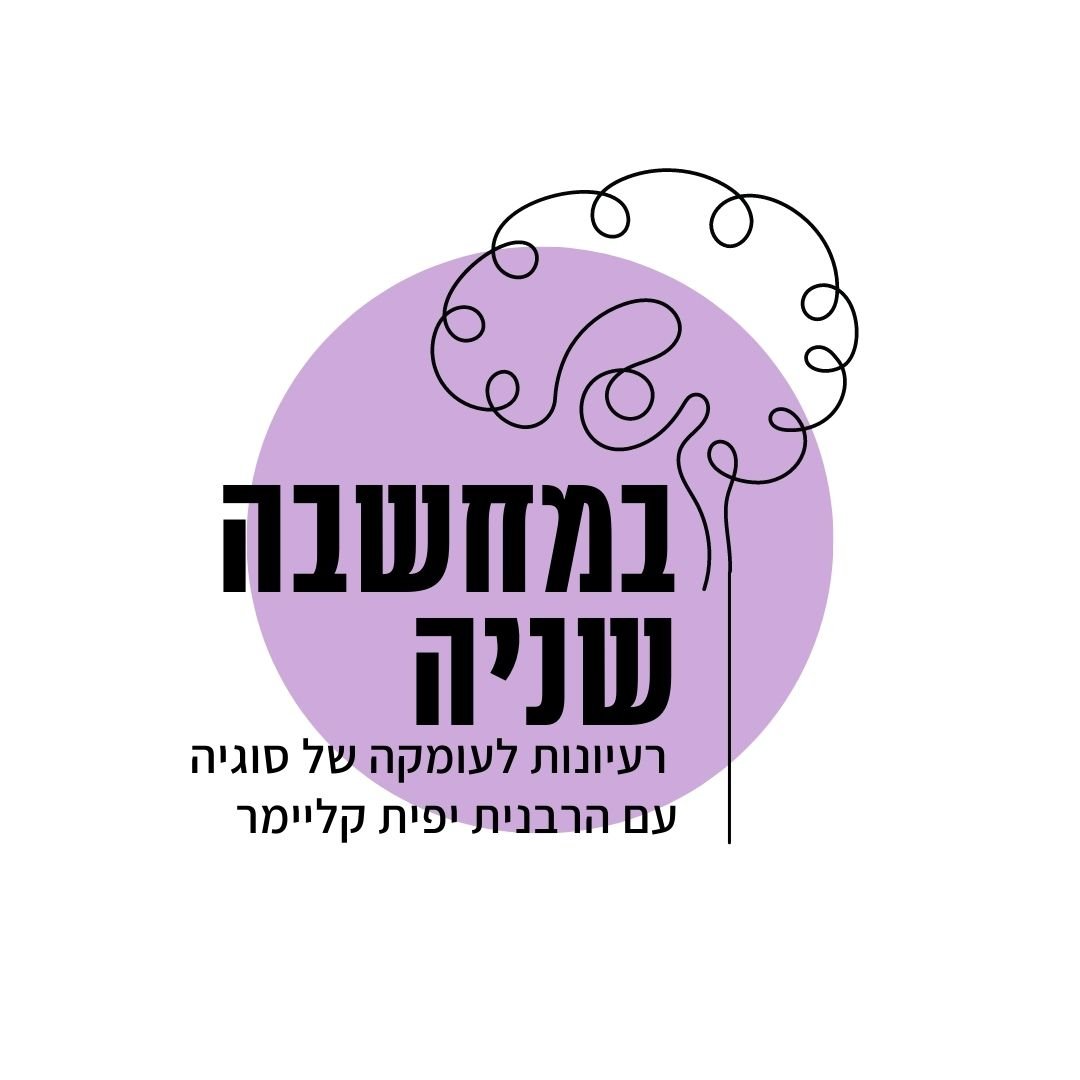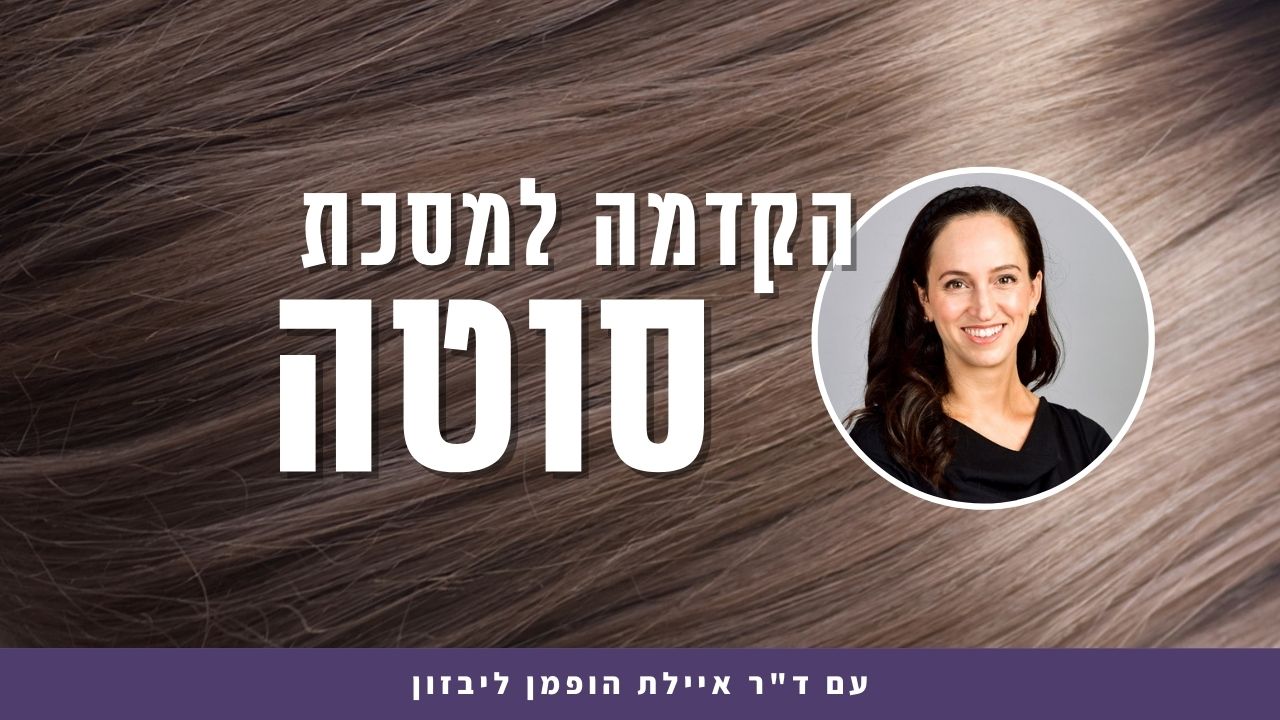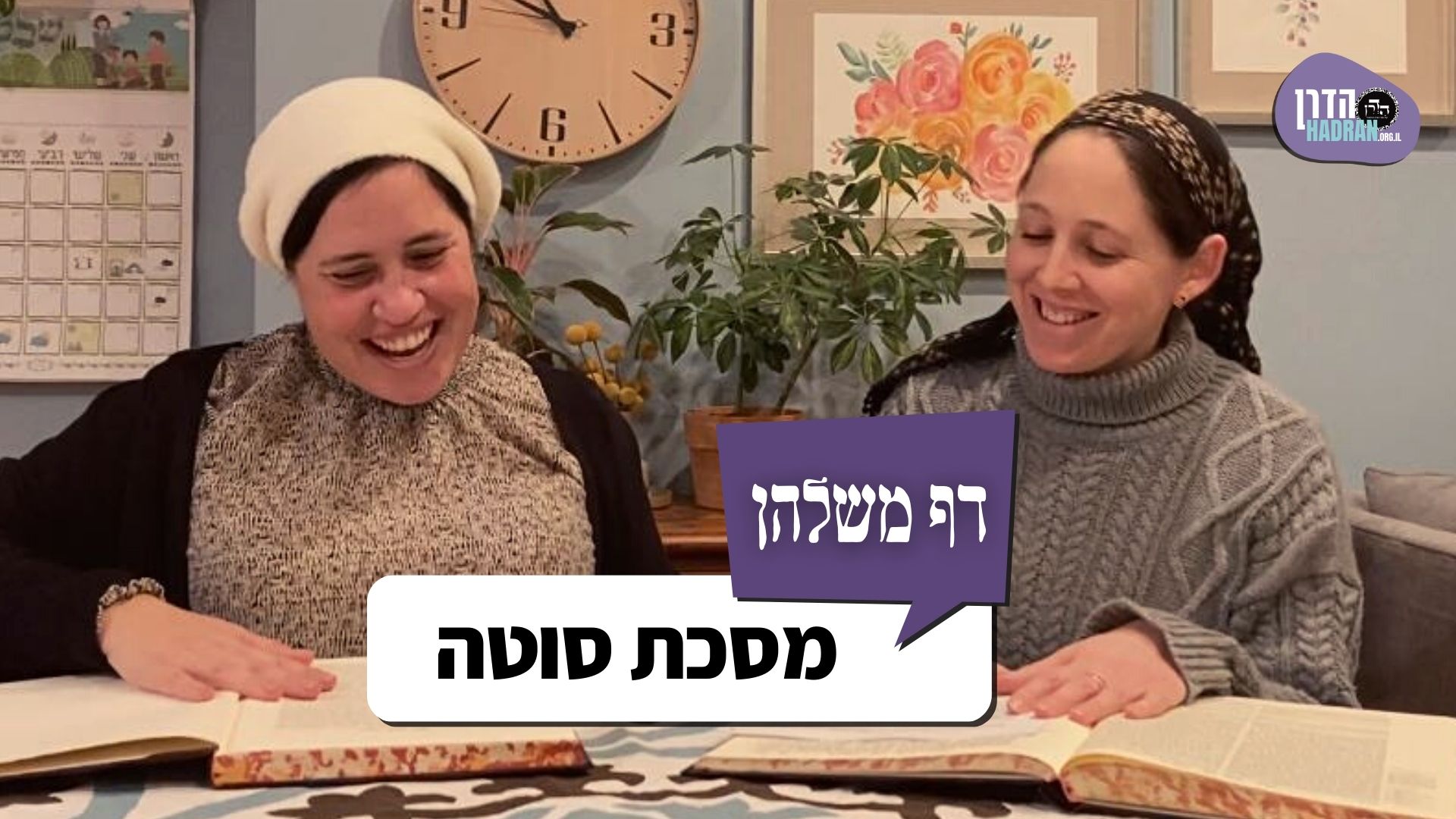סוטה כז
דּוּמָה, וְאַל יִשָּׂא בַּת דּוּמָה. שֶׁזּוֹ בָּאָה מִטִּיפָּה כְּשֵׁרָה, וְזוֹ בָּאָה מִטִּיפָּה פְּסוּלָה.
a woman whose suspected promiscuity is publicly spoken of [duma], and not marry the daughter of a woman suspected of promiscuity, as this woman, who is herself suspected of promiscuity, comes from seed of unflawed lineage; but that woman, the daughter of a woman suspected of promiscuity, comes from seed of flawed lineage, as she might be a mamzeret.
וְרַבִּי יוֹחָנָן אָמַר: יִשָּׂא אָדָם בַּת דּוּמָה, וְאַל יִשָּׂא דּוּמָה. שֶׁזּוֹ עוֹמֶדֶת בְּחֶזְקַת כַּשְׁרוּת, וְזוֹ אֵינָהּ עוֹמֶדֶת בְּחֶזְקַת כַּשְׁרוּת.
And Rabbi Yoḥanan says: It is better that a man marry the daughter of a woman suspected of promiscuity, and not marry a woman suspected of promiscuity, as this daughter maintains the presumptive status of virtuousness, but that woman suspected of promiscuity does not maintain the presumptive status of virtuousness.
מֵיתִיבִי: נוֹשֵׂא אָדָם דּוּמָה! אָמַר רָבָא: וְתִסְבְּרָא נוֹשֵׂא לְכַתְּחִלָּה?! אֶלָּא: אִם נָשָׂא, תְּנִי נָמֵי: ״בַּת דּוּמָה״.
The Gemara raises an objection to Rabbi Yoḥanan’s statement from a baraita: A man may marry a woman suspected of promiscuity. Rava said in response: And how can you understand the baraita at face value? The baraita states that a man may marry her ab initio, yet clearly it is undesirable to do so. Rather, the wording of the baraita is imprecise, and one must render it: If one married a woman suspected of promiscuity, she is permitted to him. Since the baraita is imprecise, one should also correct it and teach: The daughter of a woman suspected of promiscuity.
וְהִלְכְתָא: יִשָּׂא אָדָם בַּת דּוּמָה, וְאַל יִשָּׂא דּוּמָה. דְּתָנֵי רַב תַּחְלִיפָא בַּר מַעְרְבָא קַמֵּיהּ דְּרַבִּי אֲבָהוּ: אִשָּׁה מְזַנָּה — בָּנֶיהָ כְּשֵׁרִין, רוֹב בְּעִילוֹת אַחַר הַבַּעַל.
The Gemara concludes: And the halakha is that it is better that a man marry the daughter of a woman suspected of promiscuity, and not marry a woman suspected of promiscuity. This is as Rav Taḥalifa, from the West, i.e., Eretz Yisrael, taught before Rabbi Abbahu: If a married woman engages in adulterous sexual intercourse, her children are considered of unflawed lineage, as most instances of sexual intercourse are attributed to the husband, and consequently it is presumed that the children were conceived by the husband and not by the paramour. Therefore, the daughter of a woman suspected of promiscuity is not suspected of being a mamzeret.
בָּעֵי רַב עַמְרָם: הָיְתָה פְּרוּצָה בְּיוֹתֵר, מַהוּ? אַלִּיבָּא דְּמַאן דְּאָמַר אֵין אִשָּׁה מִתְעַבֶּרֶת אֶלָּא סָמוּךְ לְוִוסְתָּהּ — לָא תִּיבְּעֵי לָךְ, דְּלָא יָדַע בַּהּ וְלָא מְנַטַּר לַהּ.
Rav Amram raises a dilemma: What is the halakha if the woman was extremely promiscuous and one cannot reasonably attribute most instances of intercourse to the husband? Are her children considered of unflawed lineage, or is their lineage uncertain? According to the opinion of the one who says that a woman becomes pregnant only close to the time of the onset of her menstruation, you do not need to raise this dilemma, as the husband does not know the time of this, i.e., the time of her menstruation, in advance, and he does not watch her actions in order to prevent her from conceiving from another man. Her children are therefore of uncertain lineage.
כִּי תִּיבְּעֵי לָךְ, אַלִּיבָּא דְּמַאן דְּאָמַר אֵין אִשָּׁה מִתְעַבֶּרֶת אֶלָּא סָמוּךְ לִטְבִילָתָהּ, מַאי? כֵּיוָן דְּיָדַע בָּהּ, נַטּוֹרֵי מְנַטַּר לָהּ, אוֹ דִלְמָא כֵּיוָן דִּפְרוּצָה בְּיוֹתֵר — לָא? תֵּיקוּ.
When do you need to raise this dilemma? It is necessary according to the opinion of the one who says that a woman becomes pregnant only close to the time of her immersion. What is the halakha? Can it be assumed that since he knows the time of this, i.e., of her immersion, he watches her actions on that day in order to prevent her from conceiving from another man; or perhaps, since she is extremely promiscuous, her husband cannot adequately watch her and her children are considered of uncertain lineage? The Gemara concludes: The dilemma shall stand unresolved.
וְאֵלּוּ שֶׁבֵּית דִּין כּוּ׳. תָּנוּ רַבָּנַן: ״אִישׁ״, מָה תַּלְמוּד לוֹמַר ״אִישׁ אִישׁ״ — לְרַבּוֹת אֵשֶׁת חֵרֵשׁ, וְאֵשֶׁת שׁוֹטֶה, וְאֵשֶׁת שַׁעֲמוּם, וְשֶׁהָלַךְ בַּעְלָהּ לִמְדִינַת הַיָּם, וְשֶׁהָיָה חָבוּשׁ בְּבֵית הָאֲסוּרִין — שֶׁבֵּית דִּין מְקַנִּין לָהֶן לְפוֹסְלָן מִכְּתוּבָּתָן.
§ The mishna states (24a): And these are the women to whom the court issues a warning in place of their husbands: One whose husband became a deaf-mute or became an imbecile, or if he were incarcerated in prison. The Sages taught: The verse states: “If the wife of any man goes astray” (Numbers 5:12). As the verse could have said: The wife of a man, what is the meaning when the verse states: “The wife of any man”? It serves to include the wife of a deaf-mute, and the wife of an imbecile, and the wife of an insane person, and one whose husband went overseas, and one whose husband was incarcerated in prison; and it teaches that the court issues a warning to these women in order to disqualify them from receiving payment of their marriage contract.
יָכוֹל אַף לְהַשְׁקוֹתָן — תַּלְמוּד לוֹמַר: ״וְהֵבִיא הָאִישׁ אֶת אִשְׁתּוֹ״. רַבִּי יוֹסֵי אוֹמֵר: אַף לְהַשְׁקוֹתָהּ, וְלִכְשֶׁיֵּצֵא בַּעְלָהּ מִבֵּית הָאֲסוּרִין יַשְׁקֶנָּה.
One might have thought that the court’s warning is effective even to have the women drink the bitter water; therefore, the verse states: “Then the man shall bring his wife to the priest” (Numbers 5:15), indicating that only the warning issued by the husband causes his wife to drink. Rabbi Yosei says: The court’s warning is effective even to have her drink, and when her husband is released from prison he has her drink.
בְּמַאי קָא מִיפַּלְגִי, רַבָּנַן סָבְרִי: בָּעֵינַן ״וְקִנֵּא … וְהֵבִיא״, וְרַבִּי יוֹסֵי סָבַר: לָא בָּעֵינַן ״וְקִנֵּא … וְהֵבִיא״.
The Gemara asks: With regard to what do they disagree? The Gemara answers: The Rabbis hold that we require the same person who issues the warning to bring the woman to the Temple, as the verse states: “And he warned his wife…then the man shall bring his wife to the priest” (Numbers 5:14–15). And Rabbi Yosei holds that we do not require that the actions stated in the verse, i.e., “And he warned…then the man shall bring,” be performed by the same person; and although only the husband may bring the woman to the priest to drink the bitter water, the warning may be issued by the court.
תָּנוּ רַבָּנַן: ״אֲשֶׁר תִּשְׂטֶה אִשָּׁה תַּחַת אִישָׁהּ״, לְהַקִּישׁ אִישׁ לְאִשָּׁה וְאִשָּׁה לְאִישׁ. לְמַאי הִלְכְתָא? אָמַר רַב שֵׁשֶׁת: כְּשֵׁם שֶׁאִם הוּא סוֹמֵא לֹא הָיָה מַשְׁקָהּ, דִּכְתִיב: ״וְנֶעְלַם מֵעֵינֵי אִישָׁהּ״, כָּךְ הִיא, אִם הָיְתָה סוֹמָא — לֹא הָיְתָה שׁוֹתָה. רַב אָשֵׁי אָמַר: כְּשֵׁם שֶׁחִיגֶּרֶת וְגִידֶּמֶת לֹא הָיְתָה שׁוֹתָה, דִּכְתִיב:
§ The Sages taught that the verse: “This is the law of jealousy, when a wife, while under her husband, goes astray and is defiled” (Numbers 5:29), is superfluous, and serves to compare a man to a woman and a woman to a man. The Gemara asks: With regard to what halakha is this comparison necessary? Rav Sheshet says: This teaches that just as if the husband was blind he would not have her drink, as it is written: “And it was hidden from the eyes of her husband” (Numbers 5:13), indicating that the sota ritual applies only if the husband was capable of seeing her infidelity but did not do so; so too, with regard to the woman, if she were blind, she would not drink. Rav Ashi also says: Just as a lame woman and a woman without hands would not drink, as it is written:
״וְהֶעֱמִיד הַכֹּהֵן אֶת הָאִשָּׁה לִפְנֵי ה׳ … וְנָתַן עַל כַּפֶּיהָ״ — כָּךְ הוּא — אִם הָיָה חִיגֵּר אוֹ גִידֵּם, לֹא הָיָה מַשְׁקָהּ. מָר בַּר רַב אָשֵׁי אָמַר: כְּשֵׁם שֶׁאִילֶּמֶת לֹא הָיְתָה שׁוֹתָה, דִּכְתִיב: ״וְאָמְרָה הָאִשָּׁה אָמֵן אָמֵן״, כָּךְ הוּא — אִם הָיָה אִילֵּם, לֹא הָיָה מַשְׁקָהּ.
“And the priest shall stand the woman before the Lord…and place the meal-offering of memorial in her hands” (Numbers 5:18), indicating that if she is unable to stand up straight or if she does not have hands with which to accept the offering, then she does not drink; so too, if the husband were lame or without hands, he would not cause his wife to drink. Mar Bar Rav Ashi says: Just as a mute woman would not drink, as it is written: “And the woman shall say: Amen, Amen” (Numbers 5:22), indicating that she must be able to speak; so too, if the husband were mute, he would not cause his wife to drink.
הֲדַרַן עֲלָךְ אֲרוּסָה
כְּשֵׁם שֶׁהַמַּיִם בּוֹדְקִין אוֹתָהּ, כָּךְ הַמַּיִם בּוֹדְקִין אוֹתוֹ, שֶׁנֶּאֱמַר: ״וּבָאוּ״ ״וּבָאוּ״.
MISHNA: Just as the water evaluates her fidelity, so too, the water evaluates his, i.e., her alleged paramour’s, involvement in the sin, as it is stated: “And the water that causes the curse shall enter into her” (Numbers 5:24), and it is stated again: “And the water that causes the curse shall enter into her and become bitter” (Numbers 5:27). It is derived from the double mention of the phrase “and…shall enter” that both the woman and her paramour are evaluated by the water.
כְּשֵׁם שֶׁאֲסוּרָה לַבַּעַל — כָּךְ אֲסוּרָה לַבּוֹעֵל, שֶׁנֶּאֱמַר: ״נִטְמָאָה״ ״וְנִטְמָאָה״, דִּבְרֵי רַבִּי עֲקִיבָא.
Furthermore, prior to her drinking the water, just as she is forbidden to her husband, so too is she forbidden to her paramour, because in contrast to the verse stating: “Is defiled [nitma’a]” (Numbers 5:14), a superfluous conjoining prefix vav is added to a later verse, rendering the phrase: “And is defiled [venitma’a]” (Numbers 5:29). The addition indicates another prohibition, that of the woman to her paramour. This is the statement of Rabbi Akiva.
אָמַר רַבִּי יְהוֹשֻׁעַ: כָּךְ הָיָה דּוֹרֵשׁ זְכַרְיָה בֶּן הַקַּצָּב, רַבִּי אוֹמֵר: שְׁנֵי פְּעָמִים הָאֲמוּרִים בַּפָּרָשָׁה ״נִטְמָאָה״ ״וְנִטְמָאָה״ — אֶחָד לַבַּעַל וְאֶחָד לַבּוֹעֵל.
Rabbi Yehoshua said: That was how Zekharya ben HaKatzav would interpret it, i.e., he also derived from the superfluous vav that the woman is forbidden to her paramour. Rabbi Yehuda HaNasi says an alternate source: The two times that the defilement of the wife is stated in the passage, namely: “And he warns his wife, and she is defiled” (Numbers 5:14), and the later verse: “When a wife, being under her husband, goes astray and is defiled” (Numbers 5:29), indicate that her defilement results in two prohibitions. One is that she is forbidden to her husband and one is that she is forbidden to her paramour.
בּוֹ בַּיּוֹם דָּרַשׁ רַבִּי עֲקִיבָא: ״וּכְלִי חֶרֶשׂ אֲשֶׁר יִפֹּל מֵהֶם אֶל תּוֹכוֹ כֹּל אֲשֶׁר בְּתוֹכוֹ יִטְמָא״, אֵינוֹ אוֹמֵר ״טָמֵא״ אֶלָּא ״יִטְמָא״, לְטַמֵּא אֲחֵרִים. לִמֵּד עַל כִּכָּר שֵׁנִי שֶׁמְּטַמֵּא אֶת הַשְּׁלִישִׁי.
§ On that same day that Rabbi Elazar ben Azarya was appointed head of the Sanhedrin, Rabbi Akiva interpreted the verse: “And every earthen vessel into which any of them falls, whatever is in it shall be impure [yitma], and you shall break it” (Leviticus 11:33), as follows: The verse does not state: Is impure [tamei], but rather: “Shall be impure,” in order to indicate that not only does the vessel itself become ritually impure, but it can now render other items ritually impure. This teaches with regard to a loaf that has second-degree ritual impurity status due to its being placed inside an earthenware vessel that had first-degree impurity, that it can render other food with which it comes into contact impure with third-degree impurity status.
אָמַר רַבִּי יְהוֹשֻׁעַ: מִי יְגַלֶּה עָפָר מֵעֵינֶיךָ רַבָּן יוֹחָנָן בֶּן זַכַּאי, שֶׁהָיִיתָ אוֹמֵר: עָתִיד דּוֹר אַחֵר לְטַהֵר כִּכָּר שְׁלִישִׁי, שֶׁאֵין לוֹ מִקְרָא מִן הַתּוֹרָה שֶׁהוּא טָמֵא, וַהֲלֹא רַבִּי עֲקִיבָא תַּלְמִידְךָ מֵבִיא לוֹ מִקְרָא מִן הַתּוֹרָה שֶׁהוּא טָמֵא, שֶׁנֶּאֱמַר: ״כׇּל אֲשֶׁר בְּתוֹכוֹ יִטְמָא״.
After hearing Rabbi Akiva’s statement, Rabbi Yehoshua said: Who will remove the dirt from your eyes, Rabban Yoḥanan ben Zakkai, so that you could live and see this? As you would say: In the future, another generation is destined to deem pure a loaf that contracted third-degree impurity, as there is no explicit verse from the Torah stating that it is impure. But now Rabbi Akiva, your disciple, brings a verse from the Torah indicating that it is impure, as it is stated: “Whatever is in it shall be impure.”
בּוֹ בַּיּוֹם דָּרַשׁ רַבִּי עֲקִיבָא: ״וּמַדֹּתֶם מִחוּץ לָעִיר אֶת פְּאַת קֵדְמָה אַלְפַּיִם בָּאַמָּה וְגוֹ׳״, וּמִקְרָא אַחֵר אֹמֵר: ״מִקִּיר הָעִיר וָחוּצָה אֶלֶף אַמָּה סָבִיב״.
Furthermore, on that same day Rabbi Akiva interpreted the verses with regard to the Levite cities as follows: One verse states: “And you shall measure outside the city for the east side two thousand cubits…this shall be for them the open land outside the cities” (Numbers 35:5), and another verse states: “And the open land around the cities, which you shall give to the Levites, shall be from the wall of the city and outward one thousand cubits round about” (Numbers 35:4).
אִי אֶפְשָׁר לוֹמַר אֶלֶף אַמָּה, שֶׁכְּבָר נֶאֱמַר אַלְפַּיִם אַמָּה. וְאִי אֶפְשָׁר לוֹמַר אַלְפַּיִם אַמָּה, שֶׁכְּבָר נֶאֱמַר אֶלֶף אַמָּה. הָא כֵּיצַד? אֶלֶף אַמָּה מִגְרָשׁ, וְאַלְפַּיִם אַמָּה תְּחוּם הַשַּׁבָּת.
It is impossible to say that the area around the cities given to the Levites was only one thousand cubits, as it is already stated: “Two thousand cubits.” And it is impossible to say that two thousand cubits were left for them, as it is already stated: “One thousand cubits.” How can these texts be reconciled? One thousand cubits are to be set aside as a tract of open land surrounding the city, and the two thousand cubits are mentioned not in order to be given to the Levites, but to indicate the boundary of the Shabbat limit, beyond which it is forbidden to travel on Shabbat. This verse thereby serves as the source for the two-thousand-cubit Shabbat limit.
רַבִּי אֱלִיעֶזֶר בְּנוֹ שֶׁל רַבִּי יוֹסֵי הַגְּלִילִי אוֹמֵר: אֶלֶף אַמָּה מִגְרָשׁ, וְאַלְפַּיִם אַמָּה שָׂדוֹת וּכְרָמִים.
Rabbi Eliezer, son of Rabbi Yosei HaGelili, says otherwise: One thousand cubits were given to the Levites as an open tract of land, that could not be planted or built upon, and two thousand cubits of additional land were given to the Levites for planting fields and vineyards.
בּוֹ בַּיּוֹם דָּרַשׁ רַבִּי עֲקִיבָא: ״אָז יָשִׁיר מֹשֶׁה וּבְנֵי יִשְׂרָאֵל אֶת הַשִּׁירָה הַזֹּאת לַה׳ וַיֹּאמְרוּ לֵאמֹר״, שֶׁאֵין תַּלְמוּד לוֹמַר ״לֵאמֹר״, וּמָה תַּלְמוּד לוֹמַר ״לֵאמֹר״? מְלַמֵּד שֶׁהָיוּ יִשְׂרָאֵל עוֹנִין שִׁירָה אַחֲרָיו שֶׁל מֹשֶׁה עַל כׇּל דָּבָר וְדָבָר כְּקוֹרְאִין אֶת [הַ]הַלֵּל: (״אָשִׁירָה לַה׳ כִּי גָאֹה גָּאָה״.) לְכָךְ נֶאֱמַר ״לֵאמֹר״.
Additionally, on that same day Rabbi Akiva interpreted the verse: “Then Moses and the children of Israel sang this song to the Lord, and said, saying” (Exodus 15:1), as follows: As there is no need for the verse to state the word “saying,” because it states the word “said” immediately prior to it, why must the verse state the word “saying”? It teaches that the Jewish people would repeat in song after Moses every single statement he said, as is done when reciting hallel. After Moses would recite a verse, they would say as a refrain: “I will sing to the Lord, for He is highly exalted” (Exodus 15:1). It is for this reason that the word “saying” is stated, in addition to the word “said.”
רַבִּי נְחֶמְיָה אוֹמֵר: כְּקוֹרִין אֶת שְׁמַע, וְלֹא כְּקוֹרִין אֶת [הַ]הַלֵּל.
Rabbi Neḥemya says: The people sang the song together with Moses as is done when reciting Shema, which is recited in unison after the prayer leader begins, and not as is done when reciting hallel.
בּוֹ בַּיּוֹם דָּרַשׁ רַבִּי יְהוֹשֻׁעַ בֶּן הוּרְקָנוֹס: לֹא עָבַד אִיּוֹב אֶת הַקָּדוֹשׁ בָּרוּךְ הוּא אֶלָּא מֵאַהֲבָה, שֶׁנֶּאֱמַר: ״הֵן יִקְטְלֵנִי לוֹ אֲיַחֵל״. וַעֲדַיִין הַדָּבָר שָׁקוּל: לוֹ אֲנִי מְצַפֶּה, אוֹ אֵינִי מְצַפֶּה — תַּלְמוּד לוֹמַר: ״עַד אֶגְוָע לֹא אָסִיר תֻּמָּתִי מִמֶּנִּי״, מְלַמֵּד שֶׁמֵּאַהֲבָה עָשָׂה.
On that same day Rabbi Yehoshua ben Hyrcanus taught: Job served the Holy One, Blessed be He, only out of love, as it is stated: “Though He will slay me, still I will trust in Him” (Job 13:15). And still, the matter is even, i.e., the verse is ambiguous, as there are two possible interpretations of the verse. Was Job saying: I will await Him, expressing his yearning for God; or should the verse be interpreted as saying I will not await Him. As the word “lo” can mean either “to him” or “not,” it is unclear which meaning is intended here. This dilemma is resolved elsewhere, where the verse states a clearer indication of Job’s intent: “Till I die I will not put away my integrity from me” (Job 27:5). This teaches that he acted out of love.
אָמַר רַבִּי יְהוֹשֻׁעַ: מִי יְגַלֶּה עָפָר מֵעֵינֶיךָ רַבָּן יוֹחָנָן בֶּן זַכַּאי, שֶׁהָיִיתָ דּוֹרֵשׁ כׇּל יָמֶיךָ שֶׁלֹּא עָבַד אִיּוֹב אֶת הַמָּקוֹם אֶלָּא מִיִּרְאָה, שֶׁנֶּאֱמַר: ״אִישׁ תָּם וְיָשָׁר יְרֵא אֱלֹהִים וְסָר מֵרָע״, וַהֲלֹא יְהוֹשֻׁעַ תַּלְמִיד תַּלְמִידְךָ לִמֵּד שֶׁמֵּאַהֲבָה עָשָׂה.
Rabbi Yehoshua said: Who will remove the dirt from your eyes, Rabban Yoḥanan ben Zakkai, so that you could live and see this? As you taught all your life that Job worshipped the Omnipresent only out of fear, as it is stated: “And that man was wholehearted and upright, and God-fearing, and shunned evil” (Job 1:1); but now Yehoshua ben Hyrcanus, the disciple of your disciple, has taught that Job acted out of love.
גְּמָ׳ ״אוֹתוֹ״ לְמַאן? אִילֵימָא לְבַעַל — בַּעַל מַאי עָבֵיד? וְכִי תֵּימָא
GEMARA: It is stated in the mishna that just as the water evaluates whether the woman was unfaithful, so too, the water evaluates whether he committed this sin. The Gemara asks: To whom does this refer? If we say that it is referring to the husband, what did the husband do that he should be evaluated? And if you would say

